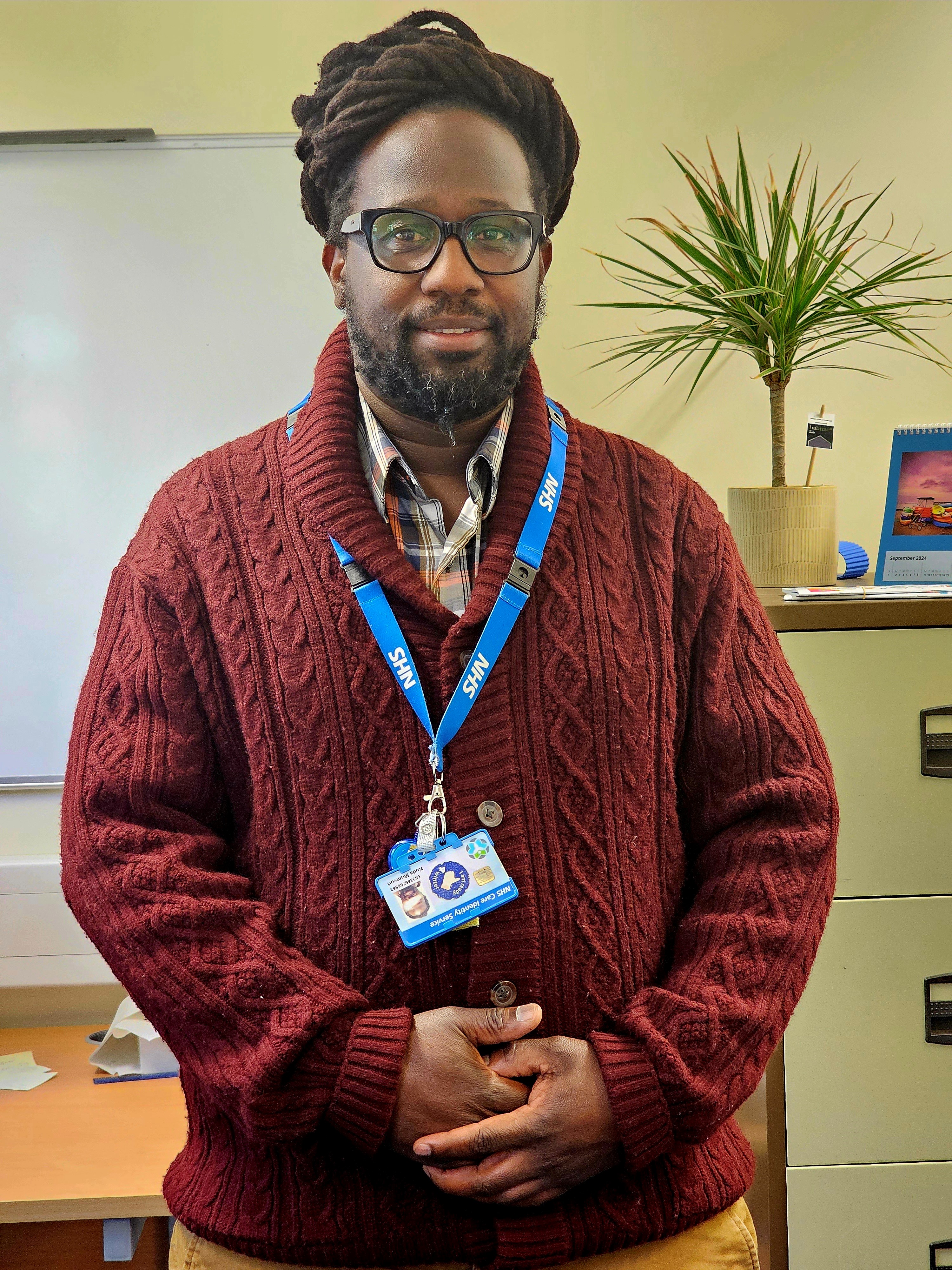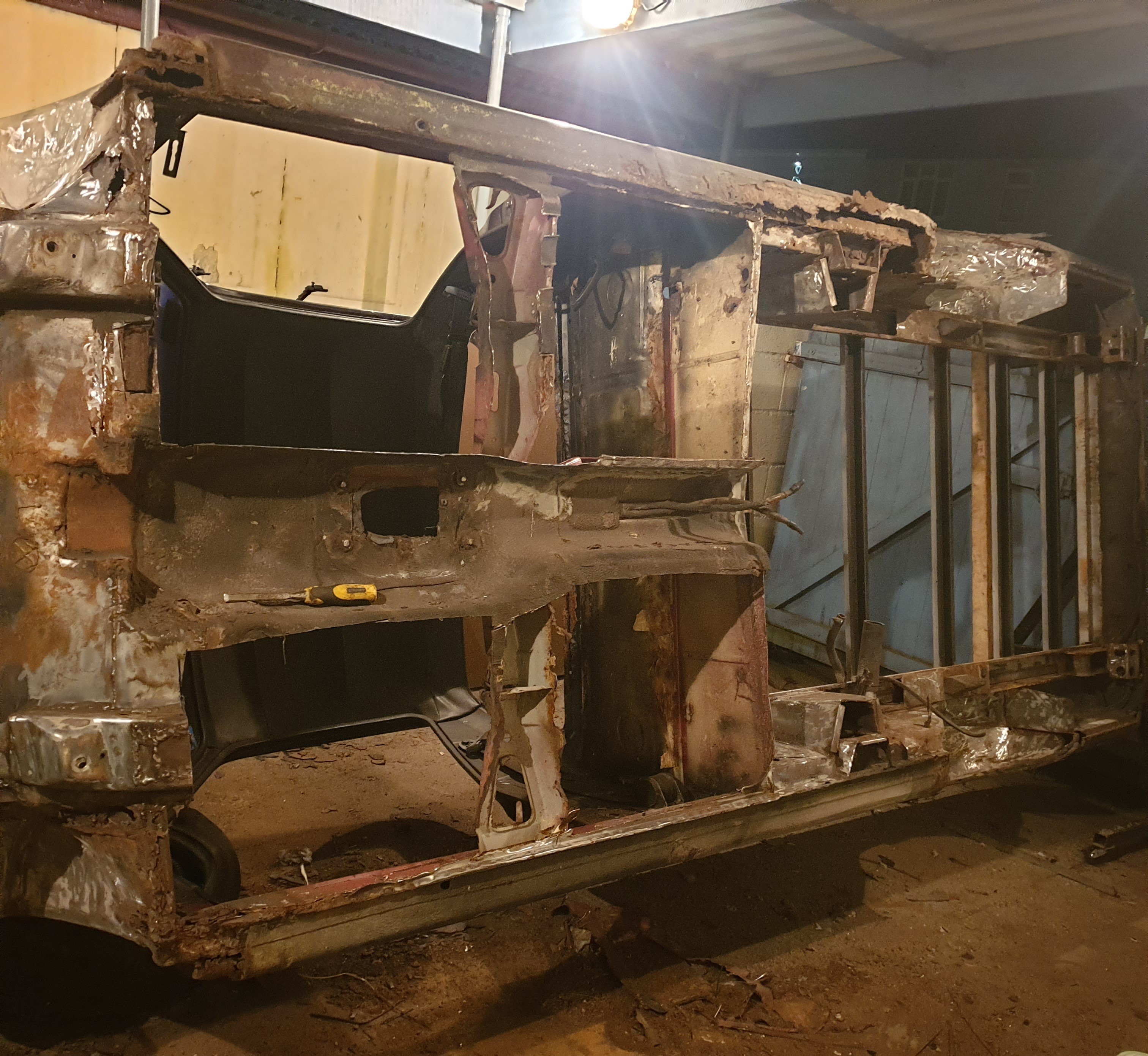Published on: 7 October 2024
As part of Black History Month (1 to 31 October), Derbyshire Healthcare NHS Foundation Trust is celebrating its diverse workforce by sharing colleagues’ stories and shining a spotlight on their lives. 
This year’s theme is ‘reclaiming narratives’ and marks a significant shift towards recognising and correcting the narratives of Black history and culture. Kuda Mumvuri, Clinical Practice Lead for Forensic and Rehabilitation Mental Health Services at Derbyshire Healthcare NHS Foundation Trust, discusses what he does in his role, his background, and the importance of celebrating Black culture and history.
Here, Kuda highlights the importance of celebrating Black history daily rather than just through an annual celebration.
What is your job role?
I currently work as a Clinical Practice Lead for Derbyshire Healthcare’s Forensic and Rehab mental health division, which supports people in the community, in specialist healthcare facilities and in the criminal justice system. My relationship with the Trust goes back to 2005 when I worked at the Radbourne Unit. I left the organisation for several years and returned in 2009. I live in Staffordshire which is a long-distance commute. There is a mental health Trust on my doorstep, but I continue to choose working as part of ‘Team Derbyshire Healthcare’ as I thoroughly enjoy my time there.
Tell us something about your family and background?
I was born in Zimbabwe and moved to the UK in 1992 as a teenager with my older sibling to study electrical engineering. Nursing is not something that was encouraged in my family as they had high hopes for me as an engineer. In all honesty, I disliked the course but never had the courage to speak up and went from college to university. In 2008, I completed my studies in BSc Sound Broadcasting Engineering and felt that I had fulfilled my parent’s dreams. On reflection, my passion for care started earlier whilst at college. I previously worked as a ‘home helper’ in Tower Hamlets (London) and had fond memories of supporting individuals with all aspects of their daily living. The ‘calling’ for me as a nurse was always there.
Whilst growing up in Zimbabwe, I had witnessed my mum practising different aspects of health care and community development, serving some poor rural parts of the country. Mum wasn’t a registered nurse but had received training in immunisation, health promotion and HIV counselling – the sort of knowledge and skills which she still draws on in her life today. I also have older siblings in senior positions within the NHS, and they are inspirational not just to me, but to many others.
This year’s theme is about ‘reclaiming narratives. Why is Black History Month important to you?
I celebrate Black history daily as I don’t believe it should only be reserved for one month of the year. It’s important to acknowledge and celebrate the daily contributions from Black colleagues within health and social care. We must not forget or ignore the challenges and negative experiences that Black people encounter daily. I’m mindful of my appearance not being reflective of some people’s perception of a nurse as we don’t often see nurses with dreadlocks on hospital wards. I have always been proud of wearing my dreadlocks as it affirms my identity as a Black African. I’m also aware of the negative stereotype views of dreadlocks and sadly they are not dissimilar from views within my own culture. In terms of reclaiming narratives, I feel very privileged to be in a position where I can change that narrative around negative views and perceptions. I’m in a leadership role within nursing and act as a role model for BAME colleagues aspiring to be leaders in the organisation.
How does your background shape the work you do for the NHS?
I have a good understanding of the health inequalities affecting BAME people and their impact on the community. I previously acted up as the Deputy Chair of our BAME staff network, and I continue to support the network and regard myself as a core member. As a Trust, we serve a community that has a diverse population and I understand that mental illness is a taboo subject in some BAME communities. For some BAME service users, I believe having someone like me, who looks just like them, can help to break down some of those barriers to treatment.
What is your greatest achievement?

During the COVID-19 lockdown, I felt the need to occupy my time with meaningful activities during isolation. I have owned a rather rusty old Volkswagen truck that was in desperate need of restoring – or scrapping. I struggled to find anyone willing to take on such a project on a shoestring budget. I decided to undertake the restoration project myself and I found the experience therapeutic. I learnt quite a lot about myself as it required determination, commitment, and resilience. I had no experience of welding or metal fabrication and I’m grateful for the tutorials I found on YouTube. Rescuing ‘Rusty’ from the scrap yard has truly been one of my biggest achievements as it passed the first MOT in my 21 years of ownership without an advisory.
Who inspires you?
My sisters are my biggest role models. It’s sadly not a cultural norm but I’m glad they have changed the narrative which I find exciting. Historically in my culture, there was an expectation that men should be breadwinners and should hold senior positions whilst women look after the home, I am proud that they changed that narrative.
What are you working on currently?
I am exploring the possibility of delivering ‘culturally specific clinical supervision’ to people who work in our NHS Trust. I’m mindful of the increase in our diverse workforce with new staff joining the organisation from Africa and different parts of the world. I understand the challenges of trying to assimilate to a new working environment in a different country, and the importance of retaining skilled health professionals – wherever they are from. Come back to me in a year, and I’ll let you know how it’s going!

